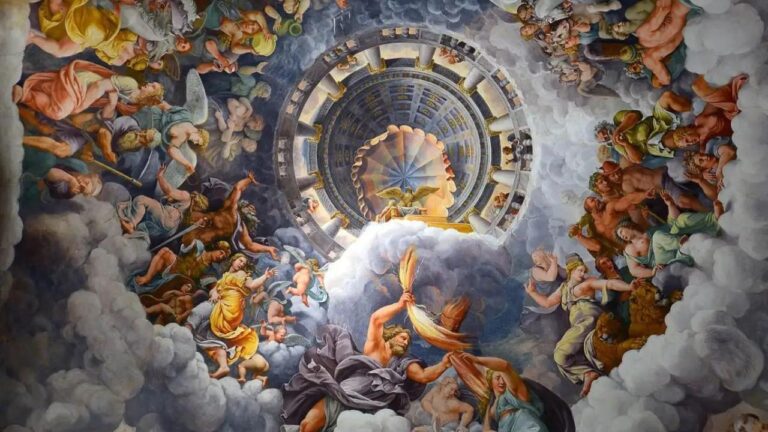In the substantial tapestry of human history, few topics evoke as a whole lot curiosity and wonder as the world of mythology. From the gods of Olympus to the monsters of the deep, those testimonies have captivated the imaginations of generations. Among the many wealthy traditions of mythology, one which stands out is the concept of “filii.” Join me as we delve into this fascinating component of historical lore, uncovering its meanings, origins, and enduring importance.
Understanding Filii: The Essence of Divine Offspring
At its middle, the term “filii” refers to divine offspring, often born from the union between gods and mortals. These beings occupy a completely unique area in mythology, embodying the bridging of two worlds—the celestial realm of the gods and the earthly realm of humanity. They possess developments and skills that set them other than each gods and mortals, making them figures of intrigue and regularly pivotal players in mythological narratives.
In numerous mythologies round the world, filii take on exceptional bureaucracy and roles. In Greek mythology, for instance, we stumble upon figures like Hercules, the effective hero born of Zeus and Alcmene, and Perseus, the mythical slayer of Medusa, whose father became Zeus himself. These heroes often adopt epic quests and face formidable challenges, demonstrating their terrific abilties and enduring resilience.
Similarly, in Norse mythology, we discover examples including Baldur, the loved son of Odin and Frigg, whose tragic fate serves as a crucial narrative inside the Norse pantheon. Despite their divine lineage, those figures are not resistant to the trials and tribulations of mortal life, showcasing the standard themes of love, loss, and redemption.
The Symbolism of Filii: Exploring Themes of Dual Identity and Destiny
One of the maximum exciting factors of filii is their twin identification—their simultaneous connection to each the divine and the mortal geographical regions. This duality regularly serves as a source of warfare and internal turmoil for these characters, as they grapple with questions of belonging, motive, and fate.
In many myths, filii are faced with the assignment of reconciling their divine heritage with their human studies. They need to navigate the expectations and obligations that come with their lineage while additionally forging their own path inside the international. This warfare mirrors the usual human experience of grappling with questions of identification and destiny, making those mythological memories resonate across cultures and generations.
Moreover, the tales of filii often convey profound symbolic meaning, serving as allegories for the human circumstance. Through their trials and triumphs, those characters embody the journey of self-discovery and personal boom, inspiring audiences to mirror on their very own lives and aspirations.
The Origins of Filii: Tracing Their Roots in Ancient Belief Systems
The idea of filii can be traced back to ancient notion structures that sought to provide an explanation for the mysteries of the natural global and the origins of humanity. In cultures around the sector, myths and legends emerged as a manner to make feel of the complexities of lifestyles and to impart ethical and spiritual teachings.
In many ancient pantheons, the gods had been not distant and aloof beings but as a substitute energetic members in the lives of mortals, frequently interacting with them in profound and unexpected approaches. The concept of gods taking mortal form and tasty in relationships with people displays a deep-seated perception in the interconnectedness of all things and the fluidity of barriers between the divine and the earthly geographical regions.
As societies developed and religions modified, the memories of filii adapted and transformed, taking up new meanings and interpretations. Yet, the fundamental subject matters of these myths—of divine lineage, heroic deeds, and the search for that means—remained consistent, continuing to resonate with audiences across cultures and centuries.
The Legacy of Filii: Their Influence on Literature, Art, and Culture
The testimonies of filii have left an indelible mark on human way of life, inspiring countless works of literature, art, and famous lifestyle. From epic poems to blockbuster films, the themes and motifs of those historic myths keep to captivate audiences and spark the imagination of artists and storytellers.
In literature, authors have drawn upon the wealthy tapestry of mythological lore to create compelling narratives that discover the complexities of the human condition. From Shakespeare’s tragic heroes to modern-day myth novels, the affect of filii can be seen in testimonies that delve into subject matters of love, power, and redemption.
Similarly, inside the visual arts, depictions of filii abound, from historical pottery and sculpture to Renaissance art work and present day illustrations. These inventive representations serve to immortalize the heroic feats and divine lineage of those mythological figures, making sure that their legacy endures for destiny generations to recognize and interpret.
In famous subculture, the stories of filii continue to captivate audiences around the arena, serving as the foundation for limitless movies, tv shows, and video games. From the adventures of superheroes to the exploits of demigods in young adult fiction, the have an impact on of ancient mythology is everywhere obvious, reminding us of the enduring power of storytelling to form our collective creativeness.
Conclusion: The Enduring Allure of Filii
In end, the idea of filii occupies a unique and fascinating location in the realm of mythology, embodying the intersection of the divine and the mortal, the heroic and the human. Through their memories, we glimpse the usual truths and timeless issues that unite humanity throughout cultures and generations.
Whether as symbols of braveness and resilience or as cautionary memories of hubris and downfall, the tales of filii keep to resonate with audiences round the sector, reminding us of the iconic energy of delusion to illuminate the human enjoy. As we adventure similarly into the nation-states of historic lore, might also we maintain to find thought and enlightenment in the testimonies of those divine offspring, whose legacy lives on in the hearts and minds of all who pay attention their tales.

